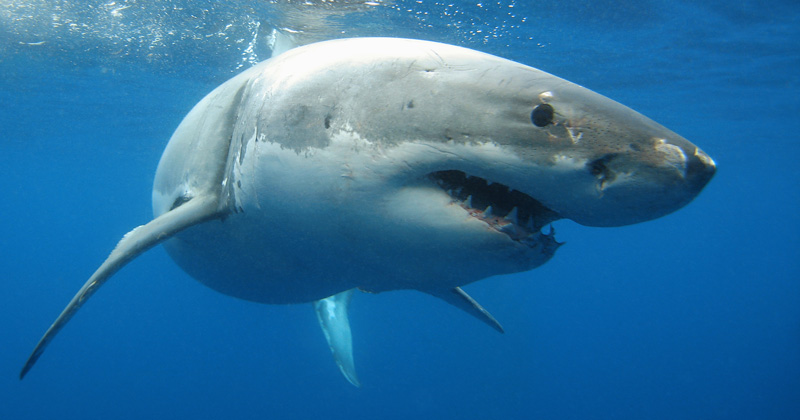


Why sharks matter
Photos by iStock and courtesy of David Shiffman November 09, 2022
Delaware Sea Grant to host world-renowned shark expert for public lecture
When it comes to threats facing the world’s shark species, there is really just one culprit responsible for the fishes’ shrinking population: humans.
To help raise awareness about the importance of sharks, as well as educate the public on how they can contribute to conservation efforts, Delaware Sea Grant will host David Shiffman for a presentation on “Why Sharks Matter” at 7 p.m., Tuesday, Nov. 15 in Cannon Lab at the University of Delaware’s Hugh R. Sharp Campus in Lewes.
The event is free and open to the public. Register to attend at deseagrant.org/WhySharksMatter. This event will not be livestreamed.

Shiffman is an award-winning public speaker and science educator. Recently, he has been traveling the world promoting his new book, Why Sharks Matter: A Deep Dive with the World’s Most Misunderstood Predator. Shiffman will sign copies of the book after the lecture, and they will be available for sale from Browseabout Books on site.
He also has a large presence on social media, where he is always happy to answer questions about sharks, which he considers to be one of the most important parts of his job.
“It doesn’t do us a whole lot of good if there’s a bunch of experts in an ivory tower who know how to save the world but we don’t tell anyone about it,” said Shiffman. “We are not the ones in charge. Scientists are not the ones who make policy decisions so we need to make sure we have a well-informed society. I consider that to be absolutely part of my job: to not just do the science and make the discoveries but to communicate the science to the public.”
Shiffman explained that sharks play a key role in bringing balance to the food web as the apex predators in their ecosystems.
“Predators keep prey populations under control, and they keep things from destabilizing,” said Shiffman. “When you’re talking about ocean and coastal food webs, these are things that billions of humans depend on and tens of millions of humans depend on for jobs and their livelihood. So we want our oceans to be healthy and that means keeping the food web healthy and that means keeping the top of the food web healthy.”
Just because they sit at the top of the food web, however, doesn’t mean that humans need to fear these creatures. While sharks are often portrayed in the media as big, scary killing machines, humans have more to fear from other humans than they do from sharks.
“It’s important to note that while every once in a while a shark does injure a person, this is really unlikely,” said Shiffman. “More people are bitten by other people on the New York City subway system every year than are bitten by sharks in the whole world. More people are killed by flower pots falling on their head as they walk down the street than are killed by sharks in the whole world.”
Sharks, meanwhile, have a lot to fear from humans. About a third of all known species of sharks are considered threatened with extinction by the International Union for the Conservation of Nature. Of those threatened species, all of them have overfishing among the serious threats to their existence.
This overfishing includes killing sharks accidentally through bycatch and on purpose through targeted fisheries for both shark fins and shark meat.
“We are better off with healthy shark populations off our coast than we are without them but we are in danger of losing many species forever,” said Shiffman. “I hope people understand what’s going on with our oceans, why it affects them, what they can do to help, and after they attend this lecture, perhaps they’ll consider why they haven’t thought about it before and it will cause them to re-think where they get some of their information.”
People can follow Shiffman on his Facebook, Twitter and Instagram pages @WhySharksMatter.
Contact Us
Have a UDaily story idea?
Contact us at ocm@udel.edu
Members of the press
Contact us at 302-831-NEWS or visit the Media Relations website

